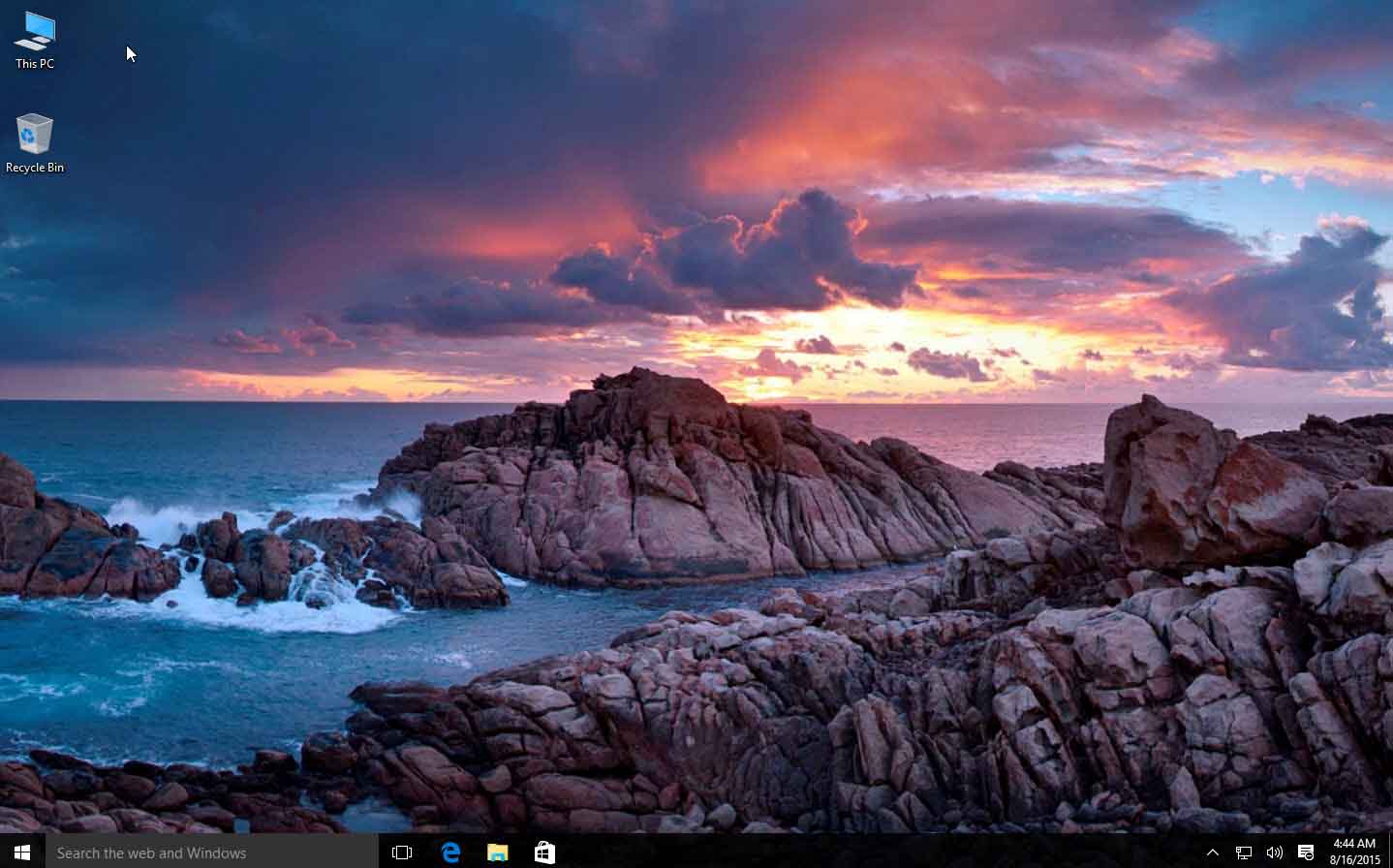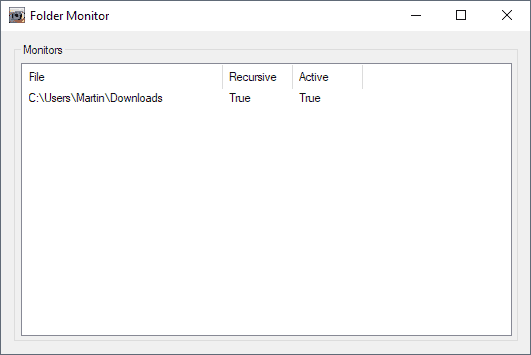
- Windows monitor folder for changes mac os#
- Windows monitor folder for changes code#
- Windows monitor folder for changes series#
To see the specific types of file system events that the FileSystemWatcher is watching for, enter $watcher | Get-Member -MemberType Event. Now that you have a new FileSystemWatcher object, you can take a look under the hood and try to figure it out. Triggering Events from the FileSystemWatcher
Windows monitor folder for changes code#
The rest of the code samples in this article work on either platform without any changes. For example, if you had a folder on Ubuntu Linux called WatchThisFolder under your current user directory, you would run $watcher.Path = '/home/ubuntu/WatchThisFolder'.
Windows monitor folder for changes mac os#
NET Core, you can do all this on a Linux or Mac OS system the same way you would on a Windows system. If you have a folder on Windows called WatchThisFolder under C:\, you would set the FileSystemWatcher to that by running $watcher.Path = 'C:\WatchThisFolder'.īecause this class is also in. You do this by setting the Path parameter on the FileSystemWatcher object to the path of whichever folder you want it to watch.

Once you do, you’ll need to tell it which folder to watch. Instantiate this class in PowerShell by running $watcher = New-Object System.IO.FileSystemWatcher. In PowerShell, this can be very useful, especially when it’s combined with other PowerShell functions. NET Core, FileSystemWatcher is a class that lives in the System.IO namespace and monitors files. NET FileSystemWatcher class and PowerShell. Sometimes when a file gets changed, it can cause instability in another application that depends on it, such as changing a port number in a properties file, a parameter in a deployment manifest, or even fixing code in production without going through source control.Īs part of managing these operating systems, engineers need a way to watch what happens to these critical files and take action when something does. Sometimes they get created, sometimes they get deleted, sometimes they get changed, and those are all normal things for an operating system to do. $fsw = New-Object IO.Files are in a constant state of flux on any operating system. # In the following line, you can change 'IncludeSubdirectories to $true if required. $filter = 'nfig' # You can enter a wildcard filter here. $folder = 'C:\FolderName' # Enter the root path you want to monitor. #The -Action parameter can contain any valid Powershell commands. #The advantage of this method over using WMI eventing is that this can monitor sub-folders. NET FileSystemWatcher class to monitor file events in folder(s). If the task is already running.: Do not start a new instance UNCHECK: Stop the task if it runs longer than: Run task as soon as possible after a scheduled start is missed Start a program: C:\Windows\System32\WindowsPowerShell\v1.0\powershell.exeĪdd arguments: -noexit -noprofile -command C:\Scripts\FileWatchAndEmail_TYPE.ps1 Run whether user is logged on or not ( as domain\administrator ) Source PowerShell scripts: C:\Scripts\FileWatchAndEmail_TYPE.ps1 Output file: C:\Scripts\config_changes.txt The beauty of using this powershell script is that it also reports on files in sub-folders whereas more traditional methods did not.

In addition, a copy of the config file is backed up to a local folder.

The change results are output to a local txt file on the server and emailed to the team. These monitors consist of a unique powershell script for each folder monitored and a scheduled task that runs these powershell scripts continuously.
Windows monitor folder for changes series#
To track changes to config files we have implemented a series of monitors via powershell scripting and scheduled tasks that send emails whenever selected files are modified.


 0 kommentar(er)
0 kommentar(er)
